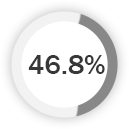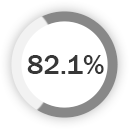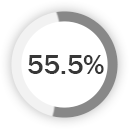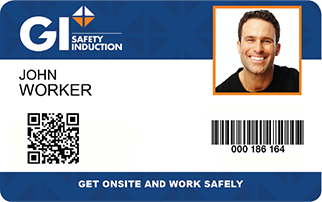About SkillPASS
What is SkillPASS?
SkillPASS is an industry competency management system. SkillPASS enables workers to provide proof of competency to comply with company, project and regulatory requirements with the aim to minimize the risk of untrained personnel carrying out any work.
SkillPASS is strictly controlled through business protocols backed up by SkillPASS administration to ensure that information is only accessed by authorized users. All data is hosted in Australia.
Benefits of SkillPASS:
- Proof of competency to work across multiple worksites.
- Manage workers individual records and skills sets, training and competencies.
- Minimizes the need for staff to carry large amounts of cards and paper based documentation to worksites.
- Track expiring competencies.
- Assists companies to comply with client and regulatory reporting requirements.
Register for SkillPASS
-

Manage
SkillPASS seamlessly manages workforce skills and qualifications in one secure location.
-

Track
SkillPASS tracks expiring competencies, notifying individuals and employers when a competency, qualification or skill needs renewal.
-

Comply
SkillPASS allows organisations to build an overview of all skills required to work on designated sites, ensuring workers are fulfilling their job requirements safely.
-

Report
SkillPASS can assist with organisational and regulatory reporting requirements.
Operating since 2011, the Queensland Workforce Skilling Strategy (QWSS) has provided a framework for industry and communities to work together and provide solutions to maximise the potential for long-term unemployed, underemployed, Indigenous people, migrants and women to gain employment in the energy industries, its supply chain or locally. The focus has been on entry level jobs and enabling access to career path opportunities.
Energy Skills Queensland sources funding from the Federal and State Governments to conduct the QWSS. Assistance from industry partners provides additional support for specific programs.
Since January 2011, Energy Skills Queensland has seen a 55.5% success rate in QWSS participants gaining employment in the energy industry. The successful outcomes have been as a result of Energy Skills Queensland staff working on the ground to develop working relationships with Aboriginal and Torres Strait Islander Communities (including Traditional Owner Groups), community partners, government agencies and Industry to ensure the individual participants are well supported to gain and retain employment.
25 projects delivered since 2015 between Gold Coast and Townsville
North Qld: Townsville, Bowen
Central Qld: Mackay, Rockhampton, Blackwater, Gladstone
North Coast: Gympie
Metro: Brisbane, Ipswich
South East: Logan, Coolangatta
Our training and employment programs include
- Nationally recognised training in in-demand qualifications
- Personal Protective Equipment
- Pre-employment medical screening
- Industry-required background checks and certifications
- Hands-on, practical learning in real work environments
- Ongoing learner support and mentoring
- Links and referrals to our employer partners
- Job search and application assistance
- Post-participation support
-

Funding
Above $5 million of SQW Funding
-

Indigenous Participants
-

Graduated
Graduated with full qualifications
-

Employment
Secured employment after
-

575 Participants
83.7% male and 16.3% female
Upcoming Programs
- Cert II in Rail Infrastructure - Ipswich
- Cert II in Rail Infrastructure - Townsville
- Cert II Metal Fabrication - Ormeau
- Cert II in Civil Construction - Townsville
Energy Skills Queensland engages with key industry stakeholders to build industry intelligence for the delivery of workforce planning initiatives. Through workforce planning, research and analysis, Energy Skills Queensland examine the current and future workforce to identify skills needs and workforce risks. It further analyses employee data to create a workforce profile of specific industry sectors enabling individual company benchmarking against profiles. Through formal industry skilling reports and strategies, Energy Skills Queensland communicates industry intelligence, outlining skilling needs and future workforce risks.
The key to effective workforce planning is better decision making in how the workforce is identified, targeted and managed. Ultimately, workforce choices made now will impact on future productivity and financial performance
Workforce Analysis Service
Initial Consultation And Scoping
Establish issues facing organisation, what needs to be achieved and which part/s of the workforce will be covered by the service
Proposal Detail
A formal proposal document will be drafted and signed by both parties explicitly stating what services will be provided, what responsibilities will be required from both parties and what timeframes will be applicable. The proposal will also include a financial breakdown of all costs and payment options
Design, Develop And Review
Data collection tools (including surveys and interviews) designed according to stipulations in proposal using customised terminology and organisational detail. (One review of survey content and amendment allowed by customer).
Data Collection
The period that a survey will be open to collect information. All information is to be collected online only (paper-based surveys can be printed and allocated but will attract larger fees and extend time frames)
Analysis And Validation
Collation and interpretation of results. All results are tabulated and graphed. Thereafter preliminary results are presented to managers to eliminate contextual influences and validate findings
Reporting And Recommendations
Final findings and recommendations are drafted in report and distributed to agreed recipients.
Workforce Planning Research Projects
Initial Consultation And Scoping
Establish research topic and outcomes that need to be achieved. Establish scope and deliverables
Proposal Detail
A formal proposal document will be drafted and signed by both parties explicitly stating what services will be provided, what responsibilities will be required from both parties and what timeframes will be applicable. The proposal will also include a financial breakdown of all costs and payment options
Establish Committees (Only Where Applicable)
Some large-scale industry-wide or technologically advanced research projects may require subject matter experts as part of a steering committee.
Data Collection & Consultation
Consultation with industry experts and desktop research.
Analysis
Collation and interpretation of information collected.
Reporting And Recommendations
Final findings and recommendations are drafted in report and distributed to agreed recipients.
Engagement & Advocacy
A primary function of Energy Skills Queensland is to assist industry to meet skills needs and mitigate workforce risk by consulting with key stakeholders to develop and implement industry policy and workforce development strategies to help attract, retain and develop skills.
Competence & Governance
Energy Skills Queensland is committed to supporting industry to improve their competency assurance and governance practices. ESQ offers a number of products and services to support competency assurance and governance activities such as SkillPASS, GI and audit capabilities.
Skill Audit
Energy Skills Queensland’s market research and engagement activities have identified that industry would benefit from independent advice Energy Skills Queensland has a number of highly qualified Audit professionals who are able to assist in a range of audit activities
Generic Induction (GI)
Member Login
The Generic Induction (GI) Mining (Surface) Programme is the first step in ensuring that all individuals working on mine sites have the capability to operate safely in their roles. The GI Programme provides training and assessment for the Resources and Infrastructure Industry (RII) Units of Competency which are specified in Recognised Standard 11, Training in Coal Mines (Qld Coal Mining Safety and Health Act 1999). The GI program has been designed, developed, and approved through consultation with Industry, the Mines Inspectorate, Registered Training Organisations (RTO’s), Contractors and the industry union body.
What We Offer
Course Overview
The Generic Induction (GI) Mining (Surface) programme provides participants the essential skills and knowledge of the legislation, communication protocols and safety procedures that are used on surface coal mines to ensure that every coal mine worker has a safe working environment. The GI Programme provides training and assessment for the Resources and Infrastructure Industry (RII) Units of Competency which are specified in Recognised Standard 11, Training in Coal Mines (QLD Coal Mining Safety and Health Act 1999).Upon successful completion of this programme, participants will gain skills and knowledge in:
- General mining overview
- General safety
- Initial first aid
- Environmental procedures
- Communication protocols
- Hazard identification/risk control
- Incident reporting/investigation
- Coal Mine Legislation
- Managing workplace hazards
- Isolation and tagging procedures
- Fire fighting and fire prevention
- Emergency procedures
Some mine sites have specific requirements for their generic induction training, anyone who is considering enrolling in the Generic Induction is advised to first confirm the site entry requirements.
Course Modules:
- RIIWHS201E – Work safely and follow WHS policies and procedures
- RIIERR205D – Apply initial response first aid.
- RIIGOV201E – Comply with site work processes/procedures
- RIIRIS201E – Conduct local risk control.
- RIICOM201E – Communicate in the workplace
- RIIERR302E – Respond to local emergencies and incidents
Students gain first-hand experience from instructors with extensive industry expertise and work through a series of real-life scenarios.
Duration: 3 days
Assessment
Throughout the program students will be assessed via in class activities and written assessments + simulated assessments and a logbook. At the end of the programme, participants who are deemed competent will receive a statement of Attainment and a Generic Induction card
Course Validity
The program is valid for up to five years.
Under Graduate
Generic Induction Refresher
This program will cover main topics in Generic Induction program using learning circles where experienced workers can share their knowledge whilst learning new skills. This is a half day program that imparts skills and knowledge to take a leadership role in maintaining safety on sites. The program also enables you to develop problem solving and decision making skills during emergencies. Some of the focused areas for discussion are:
- Hazard identification and risk management
- Roles an responsibilities of safety leaders
- Effective safety communication
- Creating and maintaining a safety culture within the workplace
- Risk perception and risk taking behaviour
Pre Requisites
Participants should have worked in the industry for five years, must be able to provide evidence of your work history and have a current statement of attainment for the six units of competency identified below:
- RIICOM201E Communicate in the workplace
- RIIGOV201E Comply with site work processes/procedures
- RIIWHS201E Work safely and follow WHS policies and procedures
- RIIRIS201E Conduct local risk control
- RIIERR205D Apply initial response First Aid
- RIIERR302E Respond to local emergencies and incidents
Metalkiferous
Contact Us
We look forward to hearing from you! Fill out the form below or call us on (07) 3721 8800








